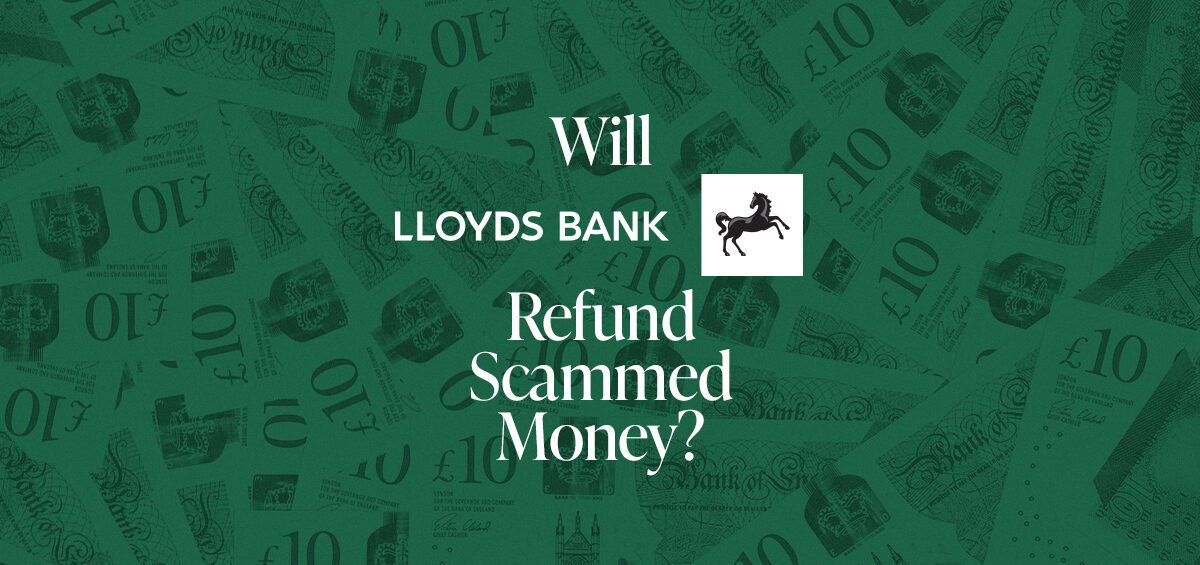In 2023, victims of impersonation scams lost an average of over £3,000, with some cases of CEO fraud seeing losses as high as £10,918 per victim. Additionally, scams where fraudsters impersonate police officers or bank staff have risen sharply, making this a growing concern for many.
This article will explore Lloyd’s refund policy on scammed money, the steps you must take, and how CEL Solicitors can help you recover your funds. Read on to find out more!
Common Types of Scams to Watch Out For
Scams come in various forms, and fraudsters are constantly developing new tactics to deceive victims. Here are some of the most common scams to be aware of:
Impersonation Scams: Fraudsters may pose as bank employees, police officers, or other trusted figures to manipulate you into transferring money or sharing personal details.
Phishing Scams: Fraudulent emails or messages that appear from legitimate institutions, asking you to click on links and provide personal or banking information.
Investment Scams: Promising high returns or “too good to be true” opportunities that lure victims into transferring money.
Romance Scams: Scammers prey on emotions, forming fake online relationships and then asking for money.
What Advice Does Lloyds Bank Give on Scams?
Lloyds Bank takes fraud seriously and provides advice to customers to help protect themselves from scams. Some of the key recommendations include:
Keep an Eye On Your Transactions
Check your bank statements regularly for unauthorised transactions. Spotting fraudulent activity early gives you the best chance of recovering your funds.
Make Sure Your Passwords Are Strong
Lloyds advises using strong, unique passwords for your online banking and accounts. Never reuse passwords across different platforms.
Never Disclose Confidential Information
Lloyds warns customers never to disclose personal or banking information, such as PINs, passwords, or account numbers, to anyone, especially over the phone, email, or text.
Will Lloyds Bank Give Me a Refund After I’ve Been Scammed?
Lloyds Bank may refund your money if you’ve been scammed, but there are certain conditions.
Under the Contingent Reimbursement Model (CRM) Code, Lloyds is committed to fair treatment of victims. However, refunds are not automatically guaranteed. Lloyds will assess your claim based on factors such as:
1) How quickly you reported the scam: The sooner you notify Lloyds, the better.
2) Whether you were negligent: If you shared sensitive information or ignored warnings, Lloyds might refuse the refund.
3) The evidence you provide: Clear evidence of fraud, such as emails, texts, or communication with the scammer, can support your claim.
However, in some cases, customers have had difficulty getting refunds, even after reporting the scam promptly. For instance, in a recent case, a customer lost £25,000 to a cruel scam caller but found that Lloyds declined the refund after an investigation.
Start Your Bank Fraud Refund Claim Against Lloyds with CEL Solicitors
If you’ve been scammed and Lloyds has denied your refund, or you’re struggling with the process, CEL Solicitors can help. Our experienced team can guide you through the following steps to recover your funds.
How We Can Help:
Assessment of Your Case: We’ll review the details of your situation and advise on the likelihood of success.
Claim Management: We will handle the entire claims process, from submitting your claim to negotiating with the bank on your behalf.
No Win, No Fee: We operate on a no-win, no-fee basis, meaning you won’t pay anything unless your claim is successful.
Fast Action: Time is of the essence when dealing with bank fraud, and we move quickly to ensure you don’t miss any crucial deadlines.
If you’ve been scammed and need assistance with your refund claim, don’t hesitate to get in touch with us. Let CEL Solicitors help you reclaim what’s rightfully yours!













